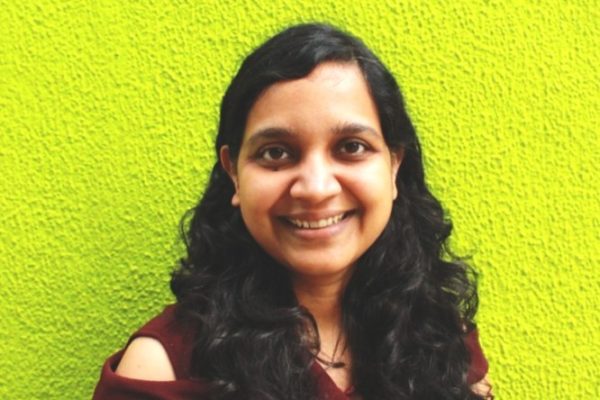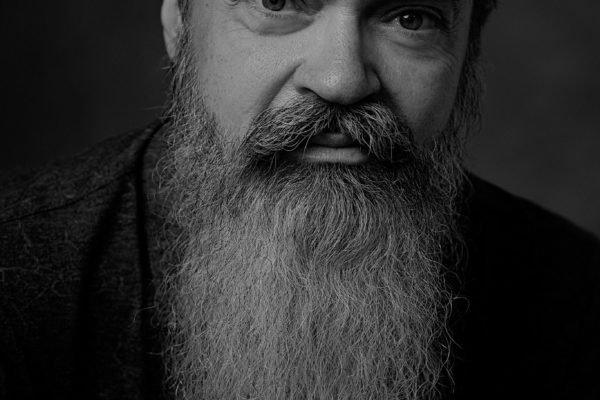SPEAKERS
Lourdes Gant
Lourdes Gant 0:05
As a business owner of an aquaculture company, how can you take the first step to be profitable and sustainable at the same time? That’s what we’re going to be talking about in this episode. Hello, and welcome to the business of agriculture podcast. This is the podcast for the Sustainable Business movement in the Aquafarming and ocean ranching industries. This podcast aims to amplify the voices of entrepreneurs addressing the United Nations global goals, aka sustainable development and goals. Number 14, to conserve and sustainably use the oceans and the seas, listening to fellow business aquaculturists in their journey in this new model of food production, of making their business sustainable, and help the ecology of the ocean, while also making a profit all at the same time. Get inspired to learn how even small to medium businesses can make an impact, save the seas, leave a legacy, and have a better quality of life. One of our goals is to take away a nugget of wisdom that will help your business move from the industrial revolution to business 5.0. Our vision is that collaboration in the aquaculture industry. I’m Laura scant your host.
Lourdes Gant 1:25
Hi everybody. I regret I missed last week’s episode. just catching up now that school has just started. My son is just going to grade seven today. So with all the preps But anyway, in this episode, I am talking about the top 10 challenges that companies face in the business of agriculture, whether they’re growing globally or locally, or regionally. And I am really grateful for all this amalgamation of minds. Interestingly enough, as you know, in season one, I have 15 guests. And the first episode for season two, I was talking about the top trends in the business of agriculture. And for this episode, I’m going to be talking about the amalgamation of mines of what are the top 10 challenges that they shared with us from season one. So let’s get the ball rolling.
Lourdes Gant 2:25
The number one top challenge that most of them face is regulations. Those who are in the wild fishery, do not like aquaculture, it’s a fact. And unfortunately, that is dictated a lot of the regulatory actions in the impediment of our industry. As you know, fishing is not the same as agriculture. but on the same token, I specifically here in Canada, I don’t know about in other countries, but maybe you can share with me, send me a message if it uses the same case from where you are. Most of our regulations are from the wild fisheries, which most of the time is not applicable for our business in aquaculture. We’re now suggesting that government has to innovate in the way that they are tracking the regulatory framework. Also, as you know, agriculture has had several 1000 years of history and regulatory rules were built around that evolution, where aquaculture has been kind of a relatively new concept, at least here in the West. And so the rules that are being applied are sometimes a lot more constructive, that they probably should be on another note. And being net positive. Most of the companies run into manual regulatory challenges that can prevent us from deploying what they really needed to do in aquaculture. And of course, with all the regulations, sometimes politics is also involved. There’s also clamoring that there should be a lot more predictable and reliable regulatory regime. You know, every business, not just agriculture needs to have some predictability and reliability of the regulations. And unfortunately, we don’t have that yet. We need predictability in the processes of the applications for new tenures or licenses or Amendments of existing ones. And we are still working to have that. And that brings about uncertainty and a lack of a growth plan. Here in Canada, we’re still striving to have an aquaculture act. We don’t have that right now. We are a misfit in the fisheries act like an agent shellfish sanitation program needs modernization it needs to enhance capacity to encourage new entrants and make it more feasible. And absolutely we need capacity development regulations for species to help with the growth. Unfortunately, at this time in Canada, we have a government that doesn’t have enough resources to process the application. in a timely manner, and we don’t have a federal champion for seafood. So hopefully, the results of this election will be more positive. We just don’t have the federal support, we need the federal champion, as I mentioned, especially if Canada is serious about taking advantage of the blue economy. So tons of challenges in just that, number one, regulation challenge.
Lourdes Gant 5:25
Number two, the agriculture lingo, due to a lack of information or lack of accurate information. We didn’t realize that in the agriculture business, we’re going to have to spend so much time defending what we do. It’s one of the biggest challenges that we have in the industry. The word aquaculture alone is sometimes pre-loaded and right just by saying that you’re into aquaculture, people get defensive. So we also need to take our share of responsibility and make sure that we’re just better at telling our own story in the industry. And I really love this when guy Dean, our last guest from Episode 15 of season one said that people still interpret farm as a four-letter word. It has a bad ash association with so farm, right aquaculture, it’s not a bad word, you know, it’s a label. So lingo, we better have a lot more education assets as Shawn or Laflin, from the global agriculture Alliance shared on an episode that he was a guest in from season one.
Lourdes Gant 6:35
The number three challenge learning, learn how to aquaculture species. And this is tremendously challenging, it can take decades before someone in the agriculture business can become successful, absolutely dealing with the biological aspect of farming all the predators that you deal with, with just animals themselves and how they are adjusting to changing ocean conditions. And because there’s also a lot of things that can go wrong in a lot of different areas. It’s a very new industry. So it’s fairly undeveloped. And there’s a lot of challenges that come with that as well. It’s something that you got to just kind of have that mindset and be ready for disruptions. Because there are things that can really take a lot longer to do than you anticipated, just due to that undeveloped nature of the industry that we’re operating in. And even that small size, a big size, so it’s a plus and minus to it. One, we have a crash, you have a limited time in which you can correct a crash. Otherwise, you run out of time before the season ends. When we look at it, we’ve basically got a species that farmers grow cows, chickens, sheep, hogs, and turkeys are really the mainstay of our protein production in the world. And this is like over 1000 years of history. But as you know, that makes up 95% of our protein intake from animals around the globe, we need to learn how to better understand where this species shouldn’t be racing. We don’t raise cows on tall mountains for reason, raise them in certain areas, we need to understand the species that we’re going to raise because I don’t think there’s going to be as many species as with being in aquaculture.
Lourdes Gant 8:18
The fourth challenge is how to profit from the species that we’re cultivating or producing. How do we do it profitably, this can also take years of seasonal revenue in some cases, in our case in the gorilla, most of the time, we’re busy from October, until the end of July. And then we kind of have two months off. And so in those two months, most of the time, there’s no cash flow coming in. I know that in some other species, it’s the same case some of the species are in the brink of collapse, as you know, and most of the fishermen are mining stocks.
Lourdes Gant 8:56
Number five environment impact. How do we do it profitably in a way that does not cause damage to the surrounding ecology? It’s also about restoring ocean health depends on what you are farming. Some of these can have some pretty substantial impact when you start looking at species that clean the water, whether it’s shellfish, or if it’s the scalp, things like that, that are crapping carbon and promoting more biodiversity and marine life that’s beneficial. As an industry. We have not done a very good job in communicating what the true ecological values are in creating sustainable or even restaurant imprudence. So we need to be more proactive in that. And of course, as you know that changing ocean conditions is very much a challenge right now for everybody in whatever industry you’re in.
Lourdes Gant 9:48
The sixth challenge, feed production there’s a lot of challenges in terms of how to feed the animals. It’s organic, and fortunately, precision farming can solve this challenge number seven, access to market finding a more efficient distribution system to the market and to the consumer to get the best value. So there are not many downsides to that. But there are hurdles. And the benefits are, of course, substantial. Markets are also a concern. So there’s a lot of reason for optimism. But there’s also a need to be looking over our shoulders all the time because there’s a lot of things that can go wrong in a lot of different areas.
Lourdes Gant 10:33
Challenge number eight, promoting economies and communities. We have issues that we need to deal with absolutely getting support and buy-in from the communities. I cannot stress enough how sustainable partnerships are a must in this agriculture business. The conflict of course of doing business in the public space here in Canada, our 10 years are leased from the government. It’s the tragedy of the commons. It’s that’s how it’s perceived. People are rightfully always very worried and very concerned about companies using the public space as their main place of operation. So this conflict plays itself out in many ways. But just like any other industry, whether it’s wealth capture fisheries as well, there are some responsible aquaculture programs out there. Absolutely. We know about human rights initiative issues and illegal unreported and regulated fisheries, we know about a lot of things that are going on, so absolutely critical to have buy-in from communities.
Lourdes Gant 11:33
Challenge number nine is labor in North America in the past five years or so this has become a much larger part of concerns about being in the business. I mentioned in some of my interviews about society. 5.0. And I’ll say this here, again, society 1.0 is when we become hunter-gatherer society 2.0 when we became an agrarian society, number three is when there’s the Industrial Revolution. And then society four is everybody’s information technology. And society five, which we’re in right now, since 2019, is imagination, society. So a lot of younger people, as you know, it’s not much into farming. And so that’s causing the labor shortage.
Lourdes Gant 12:18
And last, but not least, number 10. Challenge is food security, just getting out of the Coronavirus in the spirit. But of course, there’s the death of our yet nowadays. And one of the things that he has shown us is how quickly the supply chains can be disrupted. And this has been a challenge for some of the people in our industry. So there you have it, the top 10 challenges that agriculture businesses are facing and growing their business whether that’s locally, regionally, or globally. If you’re from another country, and you are listening to the podcast, and you don’t have this challenge, I would be interested to know how you guys solved it. In the next coming episodes. I’ll be asking our guests how they think they can solve these problems. But thank you for listening, and I hope to see you in the next episode. Bye for now.
Lourdes Gant 13:15
Thank you for listening, and I hope you are inspired by this episode. You take a moment and share this with your friends and colleagues and rate and review the podcast wherever you get your podcasts. I’d love to know what your biggest takeaway from this conversation has been? What are you going to do differently? Please share your thoughts across social media and tag us for links and Show Notes for this episode, visit our website www ducks sustainable aquaculture.ca slash podcast. Thank you again. I hope you will join me on the next episode and together we can help create a better business in aquaculture



